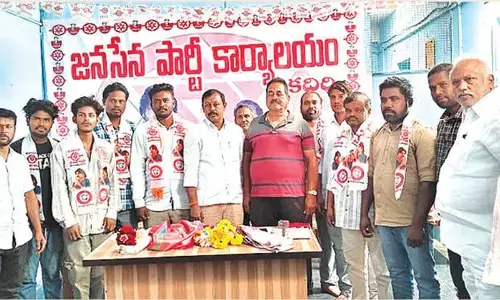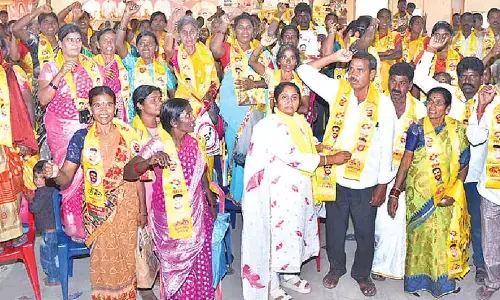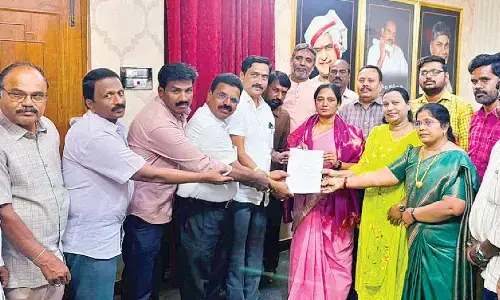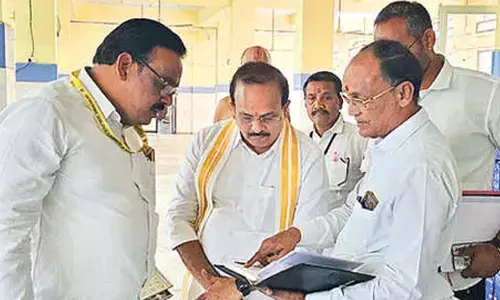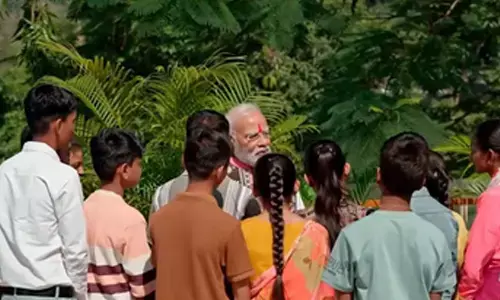Impoverishment of agriculture sector, loan waiver triggered protests: Experts
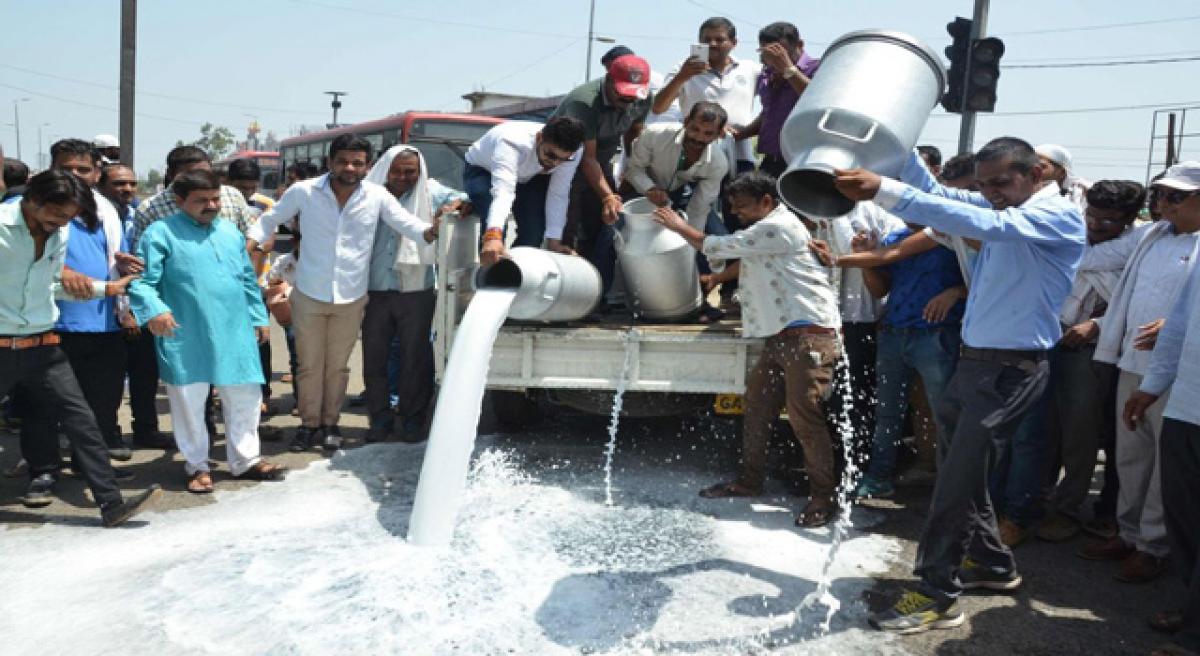
The almost deliberate impoverishment of the agriculture sector by successive governments, which has translated into poor returns to farmers, and the recent loan waiver decision by Uttar Pradesh appear to have triggered massive protests in many states, including Maharashtra and Madhya Pradesh.
The almost deliberate impoverishment of the agriculture sector by successive governments, which has translated into poor returns to farmers, and the recent loan waiver decision by Uttar Pradesh appear to have triggered massive protests in many states, including Maharashtra and Madhya Pradesh.
Farmers are struggling hard to meet their input expenses due to a drop in prices of agriculture produce, which agricultural experts attribute to the rising cost of farming, the haphazard use of fertlisers, and failed government policies over the years.
Agricultural expert Devinder Sharma said the government did not want more income to farmers since it was not in tune with its economic reform policies. "Over the years, the government has deliberately impoverished the agriculture sector.
Our economic policymakers are pushing people in agriculture to cities to get cheaper labour for industrial infrastructure and to keep food prices low so inflation does not increase," Sharma contended. "Indian agriculture is not in tune with the economic reforms.
More agricultural income means economic revival of farmers. That is what the government does not want. They want people to move out of agriculture." Pointing out that heavy use of chemicals and industrialisation in the aftermath of the Green Revolution spoiled the farming sector, noted economist H.M. Desarda said that political parties used farmers for short political gains at the cost of long-term ecological sustainability.
Despite farmer outburst in several states, which saw the deaths of at least six farmers in Madhya Pradesh earlier this month, Union Agriculture Minister Radha Mohan Singh only on Thursday broke his silence -- two days after the incident. "Madhya Pradesh incident is unfortunate. Those who are politicising it cannot do good to either the country or farmers," Singh tweeted.
The government does not have an understanding of farmers' issues and it wants to fool the people by focusing on communal politics, said Desarda, who is part of ongoing farmer protests in Maharashtra. Sharma said: "It is sad that the Agriculture Minister and the Prime Minister (Narendra Modi) are quiet on what is happening." After the Uttar Pradesh government took the decision on farm loan waiver, there have been similar demands from farmers across the country.
"When you are writing off loans of corporates, how can farmers remain quiet," Sharma asked. Former Agriculture Secretary Siraj Hussain, cited poor returns as a major reason for distress among farmers. "Farmers are not getting fair/remunerative prices for their farm produce, especially pulses, as prices have come down. They want higher MSP (Minimum Support Price).
At present, only paddy, wheat and sugarcane get the right MSP. The government should bring reforms in the markets," Hussain said. Farmers in Maharashtra have demanded loan waiver due to drought in last few years but the Madhya Pradesh farmers have not made such demand due to interest-free crop loans, he added.
"Since the farmers get interest-free crop loans in Madhya Pradesh, I think the real issue there is not so much a waiver of crop loans but not getting remunerative prices for their produce, especially horticultural produce," the former senior officer said. Panjab Singh, President of the agri think tank - the National Academy of Agriculture Sciences -- said the ongoing farmers protests could be politically motivated.
"The way protests are being promoted, putting farmers in front, it could be political," he said. Singh said the recommendations by the M.S. Swaminathan committee should be implemented for the farmers' benefit.








